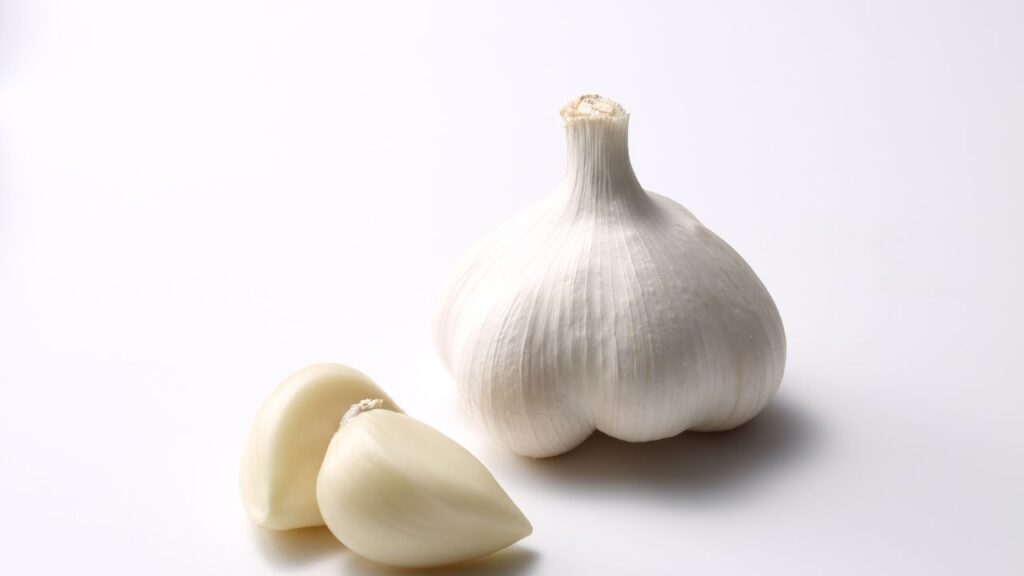Eat One Clove of Garlic Every Morning: What Happens Next Will Surprise You

Eat One Clove of Garlic Every Morning: What Happens Next Will Surprise You
Garlic, a close relative of onions, leeks, and shallots, has long been valued not just for its strong flavor in cooking but also for its alleged health-boosting properties. Used in kitchens and traditional medicine for thousands of years, garlic is rich in essential nutrients, including vitamins C and B6, manganese, selenium, and powerful sulphur compounds. Among these, allicin is said to be the most active ingredient, known for its medicinal qualities.
From supporting heart health to improving digestion, this small yet powerful ingredient is being seen as a natural remedy to many common ailments.
Believed to Boost Immunity
Garlic is believed to help strengthen the immune system by promoting the activity of white blood cells and enhancing the body’s natural defense mechanisms. The compound allicin, which is produced when garlic is crushed or chopped, is said to play a vital role in fighting infections. Regular intake is thought to help the body respond better to viruses, bacteria, and other pathogens. This immune-boosting effect makes it a popular natural remedy during flu seasons.
Said to Help Lower Blood Pressure
Garlic has been widely associated with maintaining healthy blood pressure levels. It is believed to help relax blood vessels, which in turn can improve blood flow and reduce pressure on artery walls. Allicin, the key compound in garlic, is thought to support the production of nitric oxide, which helps blood vessels expand more easily. Regular consumption may be especially helpful for those dealing with hypertension.
May Improve Cholesterol Levels
Studies suggest that garlic could help reduce levels of LDL, or “bad” cholesterol, while supporting levels of HDL, or “good” cholesterol. This dual effect is believed to contribute to better heart health by lowering the risk of plaque buildup in arteries. The impact on cholesterol is said to stem from garlic’s ability to slow cholesterol production in the liver and promote its breakdown in the body. Over time, this may reduce the risk of heart attacks or strokes.
Rich in Antioxidants
Garlic is believed to contain strong antioxidant properties that help neutralize free radicals in the body. These free radicals are known to damage cells and speed up the aging process. The antioxidants in garlic, including selenium and vitamin C, may support the body’s ability to fight oxidative stress. This can potentially protect against chronic illnesses such as heart disease and cancer.
Said to Reduce Inflammation
Garlic may have natural anti-inflammatory effects that could benefit individuals suffering from joint pain or chronic inflammation. Sulphur compounds found in garlic, such as diallyl disulfide, are believed to suppress inflammatory pathways in the body. This effect could be particularly useful for those dealing with arthritis or other inflammation-related conditions. Regular intake might help reduce swelling and improve joint mobility.
May Support Better Digestion
Including garlic in the daily diet is believed to aid digestive health. It may help stimulate the production of digestive enzymes and support the growth of healthy bacteria in the gut. This can lead to better nutrient absorption and less gastrointestinal discomfort. Its natural properties are also said to help reduce bloating and promote smoother digestion.
Believed to Fight Bacteria and Viruses
Garlic’s antibacterial and antiviral properties have made it a staple in traditional remedies. Allicin and other natural compounds in garlic are believed to target a wide range of microbes that cause illness. Regular use may help prevent infections or reduce their severity. While not a substitute for medical treatment, it is seen as a useful supplement to overall health.
May Aid in Detoxification
Garlic is believed to play a role in removing harmful toxins and heavy metals from the body. Its sulfur compounds may activate liver enzymes that help break down and remove waste from the system. This detoxifying effect can support organ function and improve general well-being. It is especially noted for its potential to protect organs from damage caused by heavy metal exposure.












